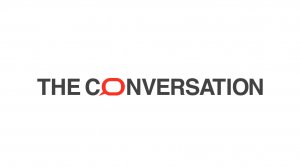![]() The Sahel, a region 3,860km wide located south of the Sahara Desert and stretching east-west across the African continent, has been a focus of attention around the world recently.
The Sahel, a region 3,860km wide located south of the Sahara Desert and stretching east-west across the African continent, has been a focus of attention around the world recently.
In the last decade, issues such as terrorism, insecurity and trafficking have characterised the region.
Military takeovers have been a major source of concern in the region and beyond in the last few years. Since 2020, the region has had four successful coup d’états and three failed ones.
The coup in Niger particularly attracted attention. This is because Niger was seen as a “darling of the west” and a model for democratic governance in the region.
Despite the challenges facing the region, the scramble for the Sahel remains intense.
The main actors in this scramble are the European Union, France, Russia, China and the United States.
The EU relies on Sahelian countries, especially Niger, to stop mass illegal immigration into the bloc. Niger is a major transit country in the region. Niger had security and defence partnerships with the EU until recently when the country unilaterally cancelled the deals. This is a source of concern to the EU.
Why are these foreign powers interested in the Sahel?
As a scholar in international relations and having researched the region for over a decade, I see the main reasons as follows:
-
availability of natural resources
-
strategic location of the region in Africa
-
economic interests of the countries involved in the scramble
-
defence and security cooperation in the form of arms sales.
Foreign powers all have their reasons to be involved in the scramble for the Sahel.
France
Most of the countries in the Sahel region were colonised by France. Unlike Britain, France has maintained strong links with former colonies. They cooperate in the economy, defence and resource extraction, to mention a few areas.
France has the first right to buy any natural resources discovered in all its former colonies. Although the relationship between France and its former colonies appeared cordial, recent coups in Francophone countries and anti-France sentiments across Africa have revealed the opposite.
The coups have been followed by large demonstrations against France and in support of the putschists.
Despite these cracks, France is keen to maintain its grip on these countries, especially pertaining to military cooperation and resource extraction. France was reluctant to pull its military out of Mali, Burkina Faso and Niger despite the countries severing military partnerships. It continues to extract natural resources in these countries.
Russia
The relationships between Russia and many Sahelian countries were established during the cold war and colonial era. More recently, the emphasis by western countries on human rights, especially during counterterrorism operations, has pushed Sahelian countries closer to Russia.
While western allies demand the rule of law, democracy, and human rights in return for security and economic support, Russia portrays itself differently. The invasion of Ukraine by Russia in 2022 also increased Russia’s interest in the Sahel because it is keen to maintain allies in Africa.
Russia has openly backed military regimes in Mali and Burkina Faso and warned against any military intervention in Niger when the military took power. Furthermore, the Wagner group, the controversial private military company which is controlled by Russia, cooperates with some countries in the Sahel. Niger has cancelled defence agreement with the EU and switched to Russia. All of these factors explain Russia’s interest in the Sahel.
China
Like Russia, China portrays itself as an alternative to the traditional ally (France) of Sahelian countries. With a mantra of “non-interference” and “respecting sovereignty”, China has entrenched itself as a “partner” of countries in the Sahel.
The Sahel region is rich in natural resources such as oil, uranium, natural gas and lithium. Chinese state-owned enterprises operate in Niger, Chad, Mali and Burkina Faso.
For instance, Mali potentially has one of the largest lithium reserves in the world and China’s Ganfeng Lithium has invested heavily in the country. In addition, despite China’s development in military hardware, most of the weapons are untested. China is keen to use the conflicts in the Sahel to test its arms products.
The United States
In 2019, the US opened its largest drone base in Africa in Agadez-Niger. A year before that, I had written about the security implications of the base for the region.
Unlike France and China, which both have extensive economic interests in the Sahel, the US has a strong military interest. Niger, in particular, is strategically located and the US can easily fly surveillance and reconnaissance drones from the country to cover the Sahel, west and central Africa.
As France is being militarily dislodged by its former colonies in the region, the US has been trying to fill the void to prevent Russia and China from establishing further military presence.
The US took several months to label the military takeover in Niger a coup so as not to lose strategic military cooperation and dominance.
The year 2023 has been particularly challenging for the countries in the Sahel. With issues ranging from economic instability to insecurity, the region remains fragile. Despite the instability and fragility, the scramble for the region remains intense with traditional allies such as France losing its grip and other powers stepping up.
The Sahel is one to keep an eye on in 2024 and beyond.
Written by Olayinka Ajala, Senior lecturer in Politics and International Relations, Leeds Beckett University
This article is republished from The Conversation under a Creative Commons license. Read the original article.
EMAIL THIS ARTICLE SAVE THIS ARTICLE ARTICLE ENQUIRY
To subscribe email subscriptions@creamermedia.co.za or click here
To advertise email advertising@creamermedia.co.za or click here











